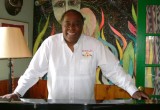A 9-9-9 Type Plan for Helping At-Risk Youth: Focusing Resources on Creative Musical Expression
We are spending a lot of time lately, examining simplified plans for funding our government (i.e. 9-9-9- plan) but we need a 9-1-1 state of mind about developing a "9-9-9" type plan for helping our nations' most important asset,our young people
Online, October 20, 2011 (Newswire.com) - 2011 Human history is filled with rites of passage children have undergone to transition from childhood to adulthood. These rituals typically required the youth to perform some act of sacrifice, bravery, or trust with the promise of respect and acceptance into adulthood at its conclusion. Our modern world has eliminated acts of self-mutilation as a rite of passage in favor of acts of self-discipline such as higher academic or trade education or military service. We are spending a lot of time lately, examining simplified plans for funding our government (i.e. 9-9-9- plan) but we need a 9-1-1 state of mind about developing a "9-9-9" type plan for helping our nations' most important asset, our young people.
The San Diego Center for Children (SDCC) honors a man who has worked for 42 years to help angry and disenfranchised youth transform their lives. Sundiata Kata first arrived at the San Diego Center for Children in 1969, as a Child Development Counselor. In 1988 his record of success led to his promotion to a position responsible for providing essential therapeutic activities designed to enhance the children's treatment programs through creative expression. Kris Burnett, visiting SDCC from his tour in the Navy, was a student of Kata's. In an interview he said he came to the center with terrible anger and rage issues. " I'd get mad at the drop of a hat and it would take three people to hold me down because I was crazy strong." "They showed me how to stop being self-destructive and gave me techniques for dealing with my rage." "When I was playing or writing music, I wasn't thinking about anything else. It really calmed me down and made me put my energy into something fun and positive." The Center gave him tools to bridge the gap from being an out-of-control kid to an adult who would make valuable contributions to the world around him.
While searching for effective strategies for working with at-risk youth, Kata discovered HealthRHYTHMS, a strategy that is music to the ears of counselors. In the world of politics, the now famous 9-9-9 plan attempted to offer a simple solution to a complex tax problem, this approach made it of great interest to millions of people. In the world of behavioral health, HealthRHYTHMS programs actually are inclusive, simple to implement, and cost effective. Focused on improved outcomes for the complex problems facing our most important resource (our youth) research has shown that HealthRHYTHMS, evidence-based group drumming programs, may reduce instrumental anger ("the Columbine Effect") strengthen the immune system, reduce stress and burnout rates and improve mood states. These programs have the simplicity of a brilliant design. Kata immediately saw the value in them. Principal developer of HealthRHYTHMS, Barry Bittman, MD, Yamaha Music & Wellness Institute CEO commented, "Sundiata's unwavering dedication and commitment lives on in the lives of so many children who have transcended their perceived obstacles through music."
A 2009 Department of Health and Human Services Study showed that nationwide (USA) 26.1% of students (grades 9-12) had felt sad or hopeless almost every day for 2 or more weeks in a row during the 12 months before the survey. Many young adults are disenfranchised because they have followed the rites of passage into adulthood by getting college degrees, or serving in our military only to discover there are no jobs waiting for them. Still dependent, in limbo between childhood and adulthood, they are becoming extremely angry. It is important to develop a simple, effective plan for addressing the challenges our young people face today. Fortunately there are people like Sundiata Kata in San Diego making a difference in the lives of at-risk youth. In 2009 Kata was invited to be a HealthRHYTHMS Endorsed Facilitator for Remo, Inc. Congratulations are in order again, because now in his 23rd year as Performance Arts Program Director at SDCC, ribbons are being cut on the new Sundiata Kata Music Center. BRAVO!
